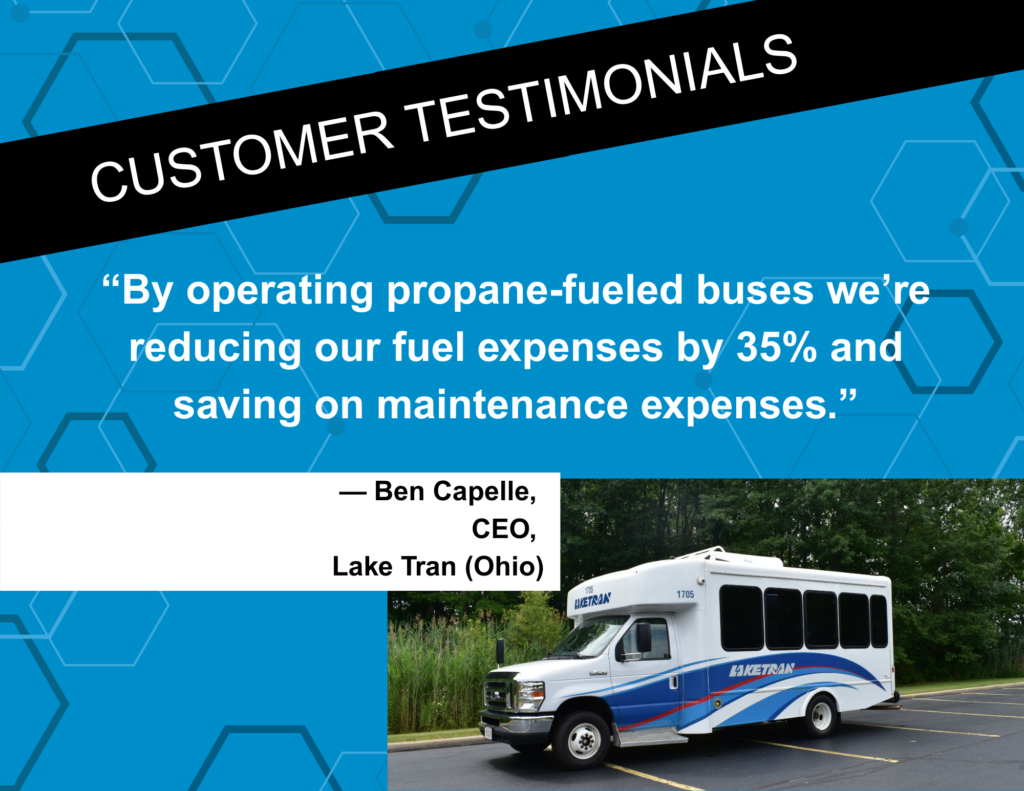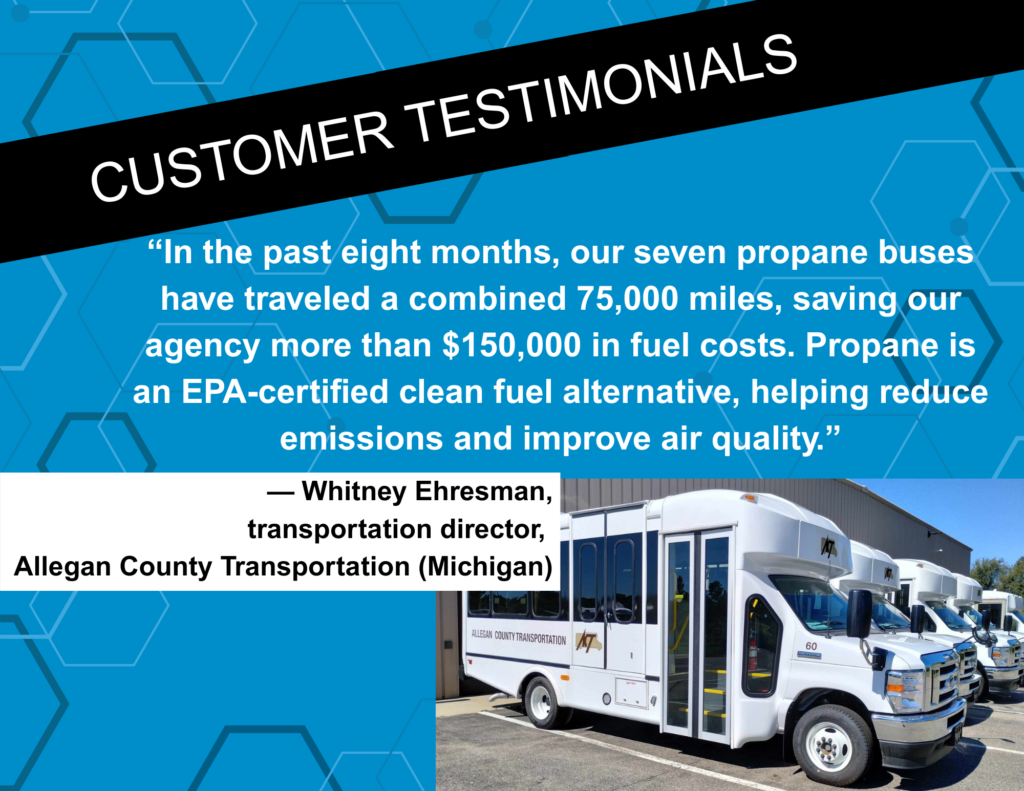Propane Transit Vehicles
The fastest growing, most sustainable alternative fuel in the world.
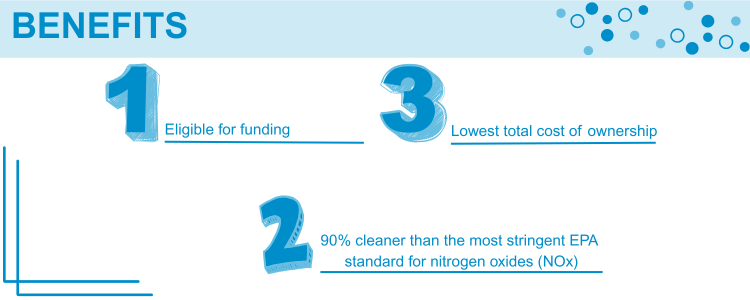
“Over a five-year period, we saved over $4 million using propane. So for us it’s been a win-win.” — Edgar H. Benning, general manager, Flint Mass Transportation Authority (Michigan)
Get Moving with Sustainable Transit & Paratransit Buses
Our propane-powered transit products include:
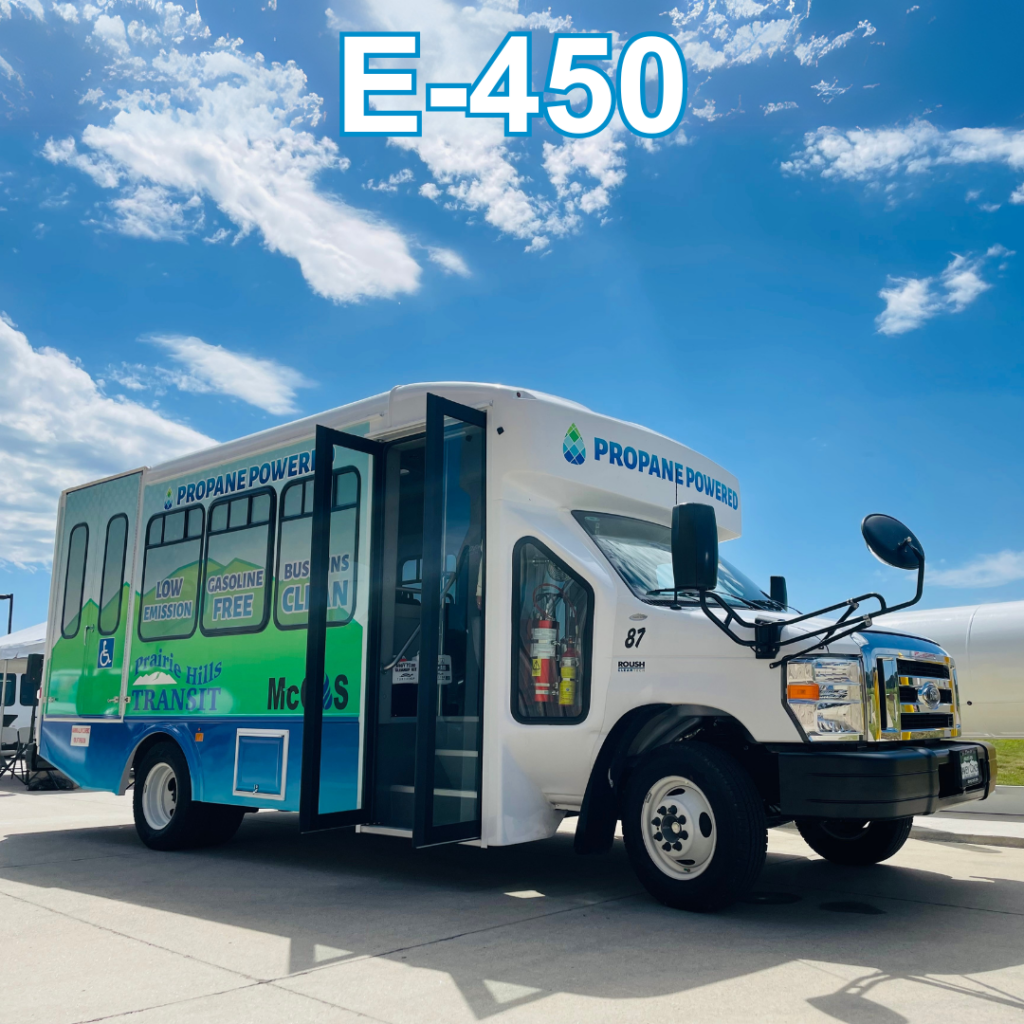
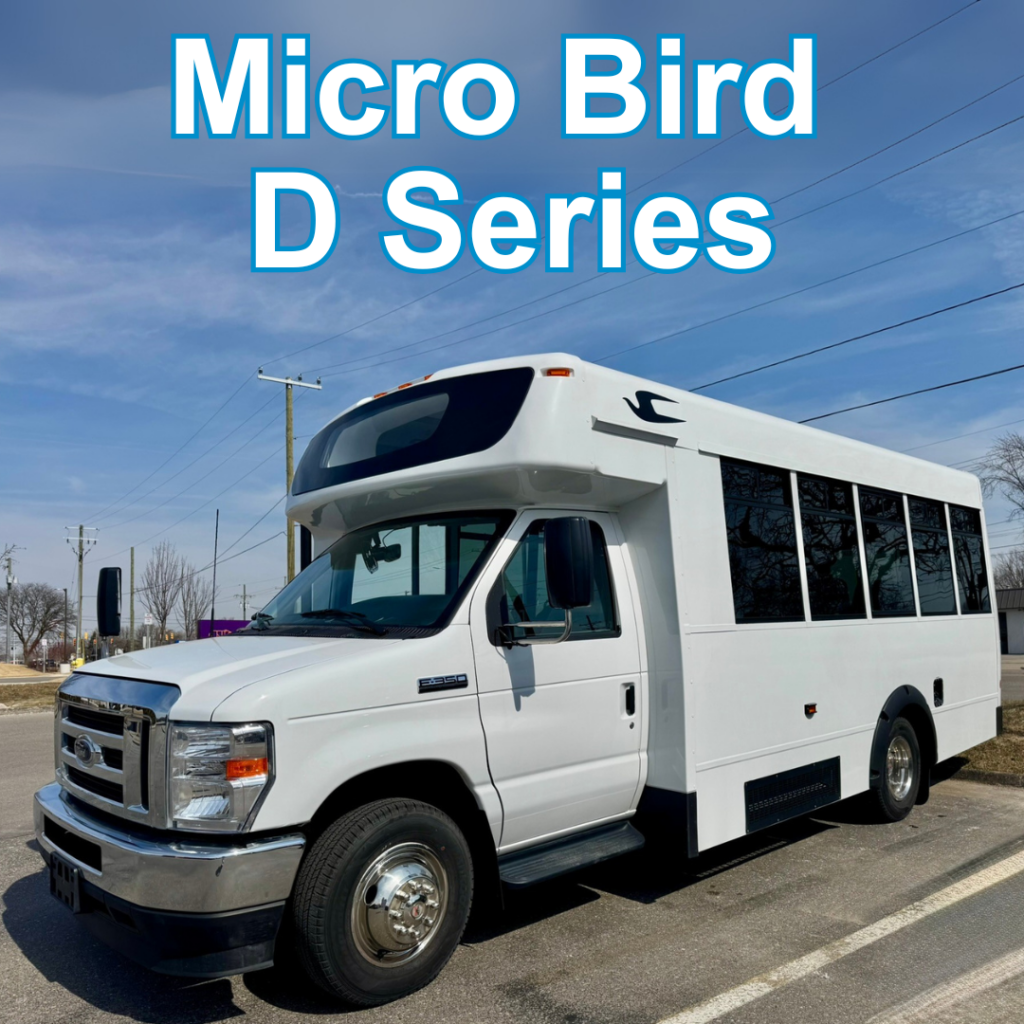
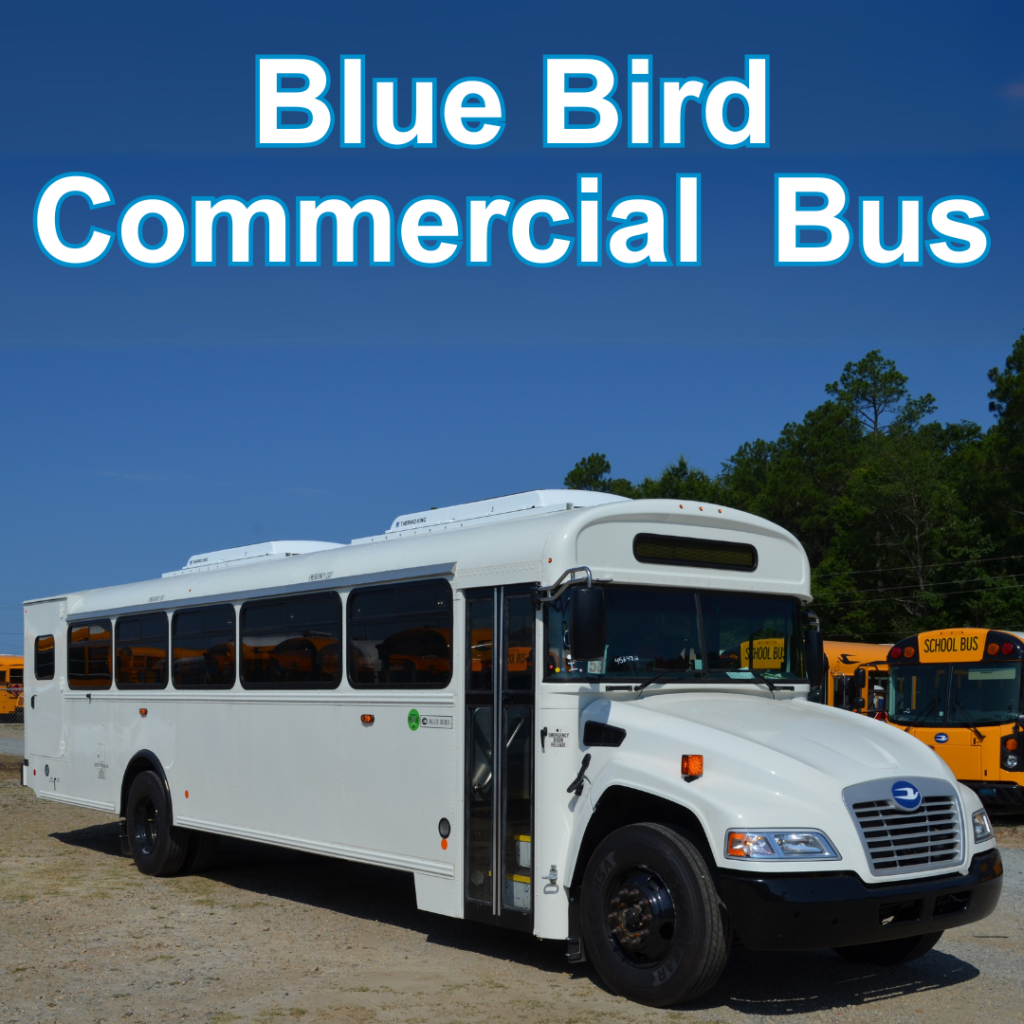

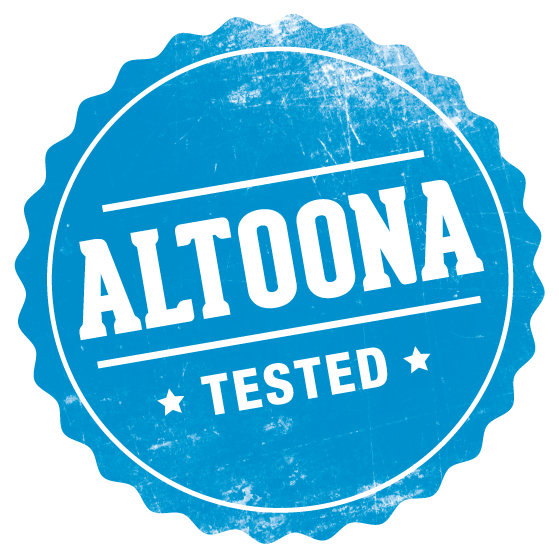
ROUSH CleanTech’s propane transit vehicles are Altoona Tested and meet federal Buy America standards.

- 50%+ reduction in fuel costs.
- 89% propane-powered fleet; operating since 2016.
- Ideal for their rural location.
- Read the case study here.

- Nearly 100% propane fleet; operating since 2017.
- Zero maintenance issues.
- Purchased additional vehicles with per-gallon fuel savings.
- Read the case study here.

- 100% propane paratransit fleet; operating since 2015.
- Air quality goals achieved.
- Affordable, flexible onsite infrastructure.
- Read the case study here.
How does propane, also known as LPG, help transit and paratransit agencies steward sustainability in their communities?
Propane vehicles lower expenses.
- 40-50% less expensive than conventional fuels.
- Reduced maintenance burden.
- The 2024 State of Sustainable Fleets Market Brief reports that propane consistently provides a low total cost of ownership year after year for vehicle applications including passenger transport.
- Funding and incentives available, but not required.
Propane vehicles are clean.
- Propane autogas is nontoxic, non-carcinogenic and non-corrosive.
- 90% cleaner than the current EPA standard for NOx.
- Renewable propane, which is nearly carbon-neutral, is available.
Propane vehicles are reliable.
- 87% of fleet users report equal or better performance when compared to conventional fuels.
- Range of 350 miles on a single fueling.
- Quick cabin warm up and cold start at negative 40°F.
Propane vehicles easily overcome the challenges that come with EVs.
- Fewer emissions than electric vehicles when full lifecycle is considered.
- LPG infrastructure is 86% less expensive and can be installed quickly.
- Robust, affordable, flexible and reliable fueling options.
LPG is widely used and gaining popularity.
- 7,000 propane transit and paratransit vehicles on the road today.
- 28 million propane vehicles worldwide.
- 2,500 public autogas fueling stations across the U.S., with stations in every state.
Want to learn more? Contact Randy Veenhoven at randy.veenhoven@roush.com or 734.679.7638.













